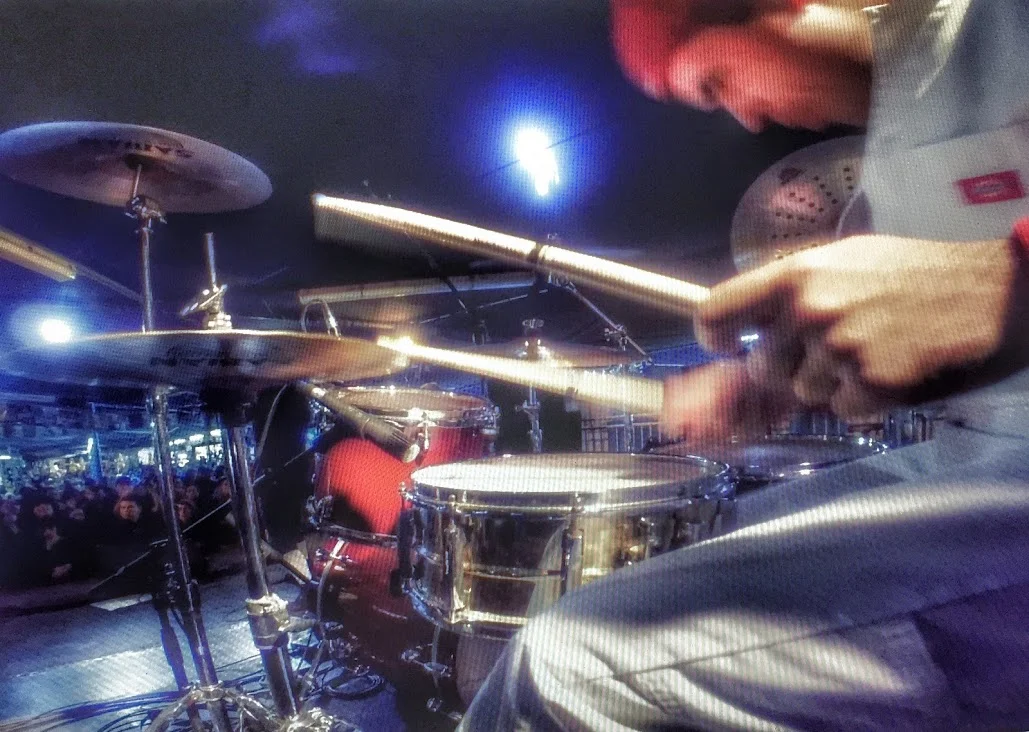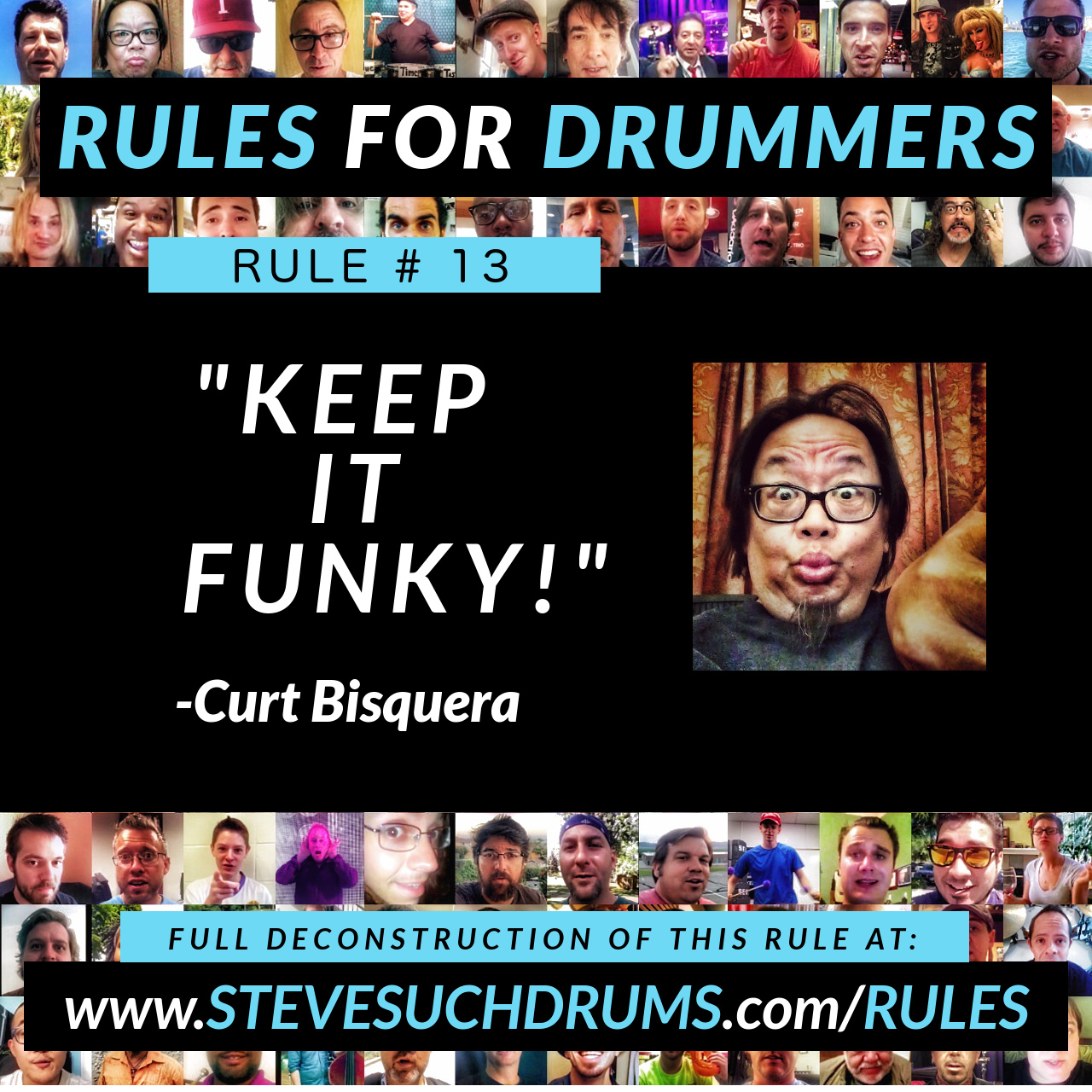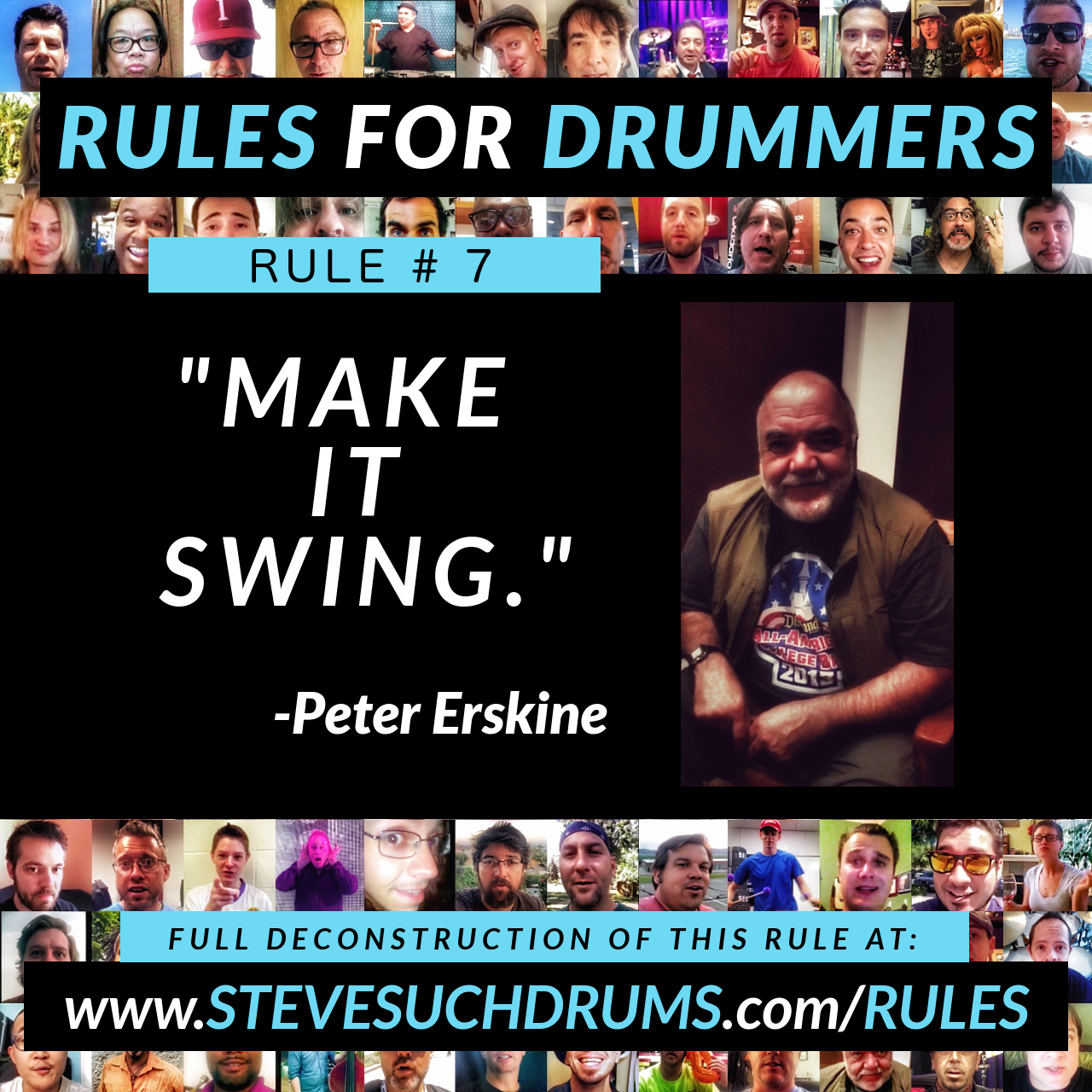In today's article, we'll dive into 2 things:
1) WHY focus is so important for drumming and life.
2) HOW to train your ability to focus, both on stage and off stage.
Among being one of the greatest innovators of brush playing, you probably know Jeff Hamilton as co-leader and drummer of one of the most successful modern big bands of all time, the Clayton-Hamilton Orchestra.
When asked to give just 3 words of advice to drummers, here was his response:
“100% Focus Nightly.”
This advice seems to be relevant more than ever these days.
If you've played in a Big Band before (as Jeff does), you know that these drummers are responsible for just about everything:
1) keeping time in a way that locks in 16-20 bandmates on stage
2) playing section figures with the band
3) setting up figures so the horn/sax section comes in together
4) dynamics, transitions, tempos, etc.
5) supporting soloists,
6) drum solos
7) excellent chart-reading abilities.
I really enjoyed my years of college big band playing because it requires more focus than almost any other gig out there; you must play with precision, dynamics, and most importantly, FOCUS.
FOCUS is required because otherwise, you won’t be able to get through the gig without a train-wreck.
However... what happens when you’re NOT playing in a big band?
What happens when you're playing the 100th show with a band you’ve been playing in for years?
What happens when you know the material inside-out?
What happens when the music you’re playing is so engrained in your muscle-memory that you don’t need to think anymore?
How do you stay focused night after night?
I’ve been there before, and I’m sure you have too. These are the moments where non-musical thoughts can start to enter: you begin thinking about what you’re going to eat after the show, thinking about what happened earlier that day, thinking about the city you’re in tonight, or noticing the cute girl in the front row.
Counter-intuitively, Jeff Hamilton’s advice is actually most relevant when you’re feeling least challenged.
In other words: it’s EASY to stay focused on a DIFFICULT gig, but it’s DIFFICULT to stay focused on an EASY gig.
These moments are dangerous, because when you arrive in that mental space, it means that you are no longer playing with conviction. It means you’re no longer giving your absolute best. It means that you’re not being fair to your audience, and most importantly, not being fair to yourself!
So... how do we stay focused during times when we seem to be going on auto-pilot?
3 WAYS TO DEVELOP FOCUS ON STAGE:
#1 - SUGGEST NEW MATERIAL
Rotate new material in regularly and start small, maybe just one new song per night/week/month. Adding new material to your set will re-ignite your focus and get you out of auto-pilot syndrome.
#2 - MOVE THE FOCUS TO YOUR BANDMATES
Of course you should be doing this already... but for anyone who’s toured with a band, often times you’ll find yourself focused on the energy of the crowd. If you find your mind constantly focused on the mosh pit in front of you rather than the music, create a game for yourself where you just focus on one musician for an entire song. For example, only pay attention to what the bassist is doing. Learn his/her part inside and out. How is what I’m playing supporting / not supporting the bass part? What could I be doing differently?
3) CREATE "MOCK-PRESSURE" SITUATIONS
I have to give credit to the great Rich Redmond for this advice. He said that if you’re ever playing a gig that doesn’t REQUIRE a lot of focus, re-frame your mind to use it as a way to practice for higher-pressure opportunities to come in the future. For example; while playing, imagine that you’re recording the perfect take in the studio, imagine that you’re auditioning for a major artist, or imagine that your performance is being filmed live to be sold on dvd. How would your focus/playing change under those circumstances? Which begs the question… shouldn’t we ALWAYS be playing with that amount of focus?
THE NEXT LEVEL
Hopefully by now you understand why focus is important when playing music… but how can we apply this concept beyond the drums and into our everyday lives?
Today we live in a world of constant noise and distraction. Anytime we are doing something, it means that we AREN’T doing a million other things. We’re in the age of multitasking and push-notifications… how on earth do we stay focused in 2016??
Here's few strategies that will help you develop your focus in every day life:
1) Disable all alerts/notifications from your phone. Let’s face it; you’ll already check your phone throughout the day anyway, so now you’ll see these messages/emails when you actually want to (instead of when you’re in the middle of doing something else).
2) Consider a "media-fast”. Take a week off from Facebook, Twitter, or whatever your guilty pleasure is. Notice how less distracted you are without a constant news feed in your life. Do you now find that you have more time to accomplish your goals?
3) Set a timer for 15 minutes. For those crunch-time moments when you really need to focus. Once you start the timer, begin working on whatever you need to accomplish, and work as hard as possible. Once the timer goes off, stop working. You’ll find that when you set a time limit, your brain forces you to do whatever it takes to accomplish the task in the amount of time given. You’ll be surprised at how effective this can be for small, annoying tasks (putting laundry away, cleaning the house, etc.).
4) Develop a regular mindfulness practice - my definition of meditation is the act of focusing on one thing with purpose. Using an app like Headspace is a great way to get started and to train your brain how to stay focused.






























